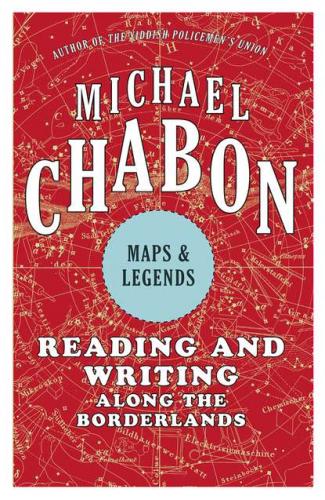Maps and Legends: Reading and Writing Along the Borderlands
MICHAEL CHABON
To Ayelet
The more I dive into this matter of whaling, and push my researches up to the very spring-head of it, so much the more am I impressed with its great honorableness and antiquity; and especially when I find so many great demi-gods and heroes, prophets of all sorts, who one way or other have shed distinction upon it, I am transported with the reflection that I myself belong, though but subordinately, to so emblazoned a fraternity.
—Herman Melville, on the writing of fan fiction
Contents
THOUGHTS ON THE DEATH OF WILL EISNER
GOLEMS I HAVE KNOWN,OR: WHY MY ELDER SON’S MIDDLE NAME IS NAPOLEON
P.S Insights, Interviews & More …
Secret Skin: An Essay in Unitard Theory
Read on
Index with Recommended Reading
THOUGHTS ON THE MODERN SHORT STORY
E NTERTAINMENT HAS A bad name. Serious people learn to mistrust and even to revile it. The word wears spandex, pasties, a leisure suit studded with blinking lights. It gives off a whiff of Coppertone and dripping Creamsicle, the fake-butter miasma of a movie-house lobby, of karaoke and Jägermeister, Jerry Bruckheimer movies, a Street Fighter machine grunting solipsistically in a corner of an ice-rink arcade. Entertainment trades in cliché and product placement. It engages regions of the brain far from the centers of discernment, critical thinking, ontological speculation. It skirts the black heart of life and drowns life’s lambency in a halogen glare. Intelligent people must keep a certain distance from its productions. They must handle the things that entertain them with gloves of irony and postmodern tongs. Entertainment, in short, means junk, and too much junk is bad for you—bad for your heart, your arteries, your mind, your soul.
But maybe these intelligent and serious people, my faithful straw men, are wrong. Maybe the reason for the junkiness of so much of what pretends to entertain us is that we have accepted—indeed, we have helped to articulate—such a narrow, debased concept of entertainment. The brain is an organ of entertainment, sensitive at any depth, and over a wide spectrum. But we have learned to mistrust and despise our human aptitude for being entertained, and in that sense we get the entertainment we deserve.
I’d like to believe that, because I read for entertainment, and I write to entertain. Period. Oh, I could decoct a brew of other, more impressive motivations and explanations. I could uncork some stuff about reader response theory, or the Lacanian parole. I could go on about the storytelling impulse and the need to make sense of experience through story. A spritz of Jung might scent the air. I could adduce Kafka’s formula: “A book must be an ice-axe to break the seas frozen inside our soul.” I could go down to the café at the local mega-bookstore and take some wise words of Abelard or Koestler about the power of literature off a mug. But in the end—here’s my point—it would still all boil down to entertainment, and its suave henchman, pleasure. Because when the axe bites the ice, you feel an answering throb of delight all the way from your hands to your shoulders, and the blade tolls like a bell for miles.
Therefore I would like to propose expanding our definition of entertainment to encompass everything pleasurable that arises from the encounter of an attentive mind with a page of literature.
Here is a sample, chosen at random from my career as a reader, of encounters that would be covered under my new definition of entertainment: the engagement of the interior ear by the rhythm and pitch of a fine prose style; the dawning awareness that giant mutant rat people dwell in the walls of a ruined abbey in England; two hours spent bushwhacking through a densely packed argument about the structures of power as embodied in nineteenth-century prison architecture; the consummation of a great love aboard a lost Amazon riverboat, or in Elizabethan slang; the intricate fractal patterning of motif and metaphor in Nabokov and Neil Gaiman’s Sandman; stories of pirates, zeppelins, sinister children; a thousand-word-long sentence comparing homosexuals to the Jews in a page of Proust (vol. 3); a duel to the death with broadswords on the seacoast of ancient Zingara; the outrageousness of whale slaughter or human slaughter in Melville or McCarthy; the outrageousness of Dr. Charles Bovary’s clubfoot-correcting device; the outrageousness
